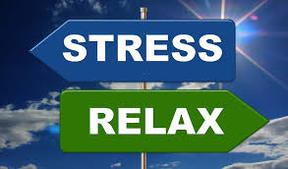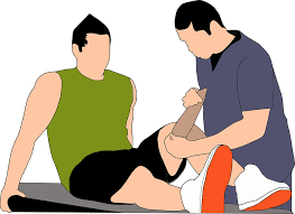 Many times, with stress, you don’t know you're over capacity. You're a strong, competent, capable person who has coped with many demands and endured difficult situations over the course of your life. Then suddenly, you find yourself overwhelmed by the smallest thing. You say to yourself, “What the heck is the matter with me?” and blame yourself for breaking down. The truth is: there’s nothing wrong with you. "How can that be?" you wonder. When it comes to stress, humans are like elevators. An elevator is designed to carry a certain maximum weight. At any one time, it may be able to carry more than it’s designed to, but if it carries that excessive amount consistently, it begins to break down. The engine starts to smoke. The cable starts to fray. But all this is taking place outside of your awareness. It’s outside the elevator car. You might notice a funny smell. Maybe the doors stick sometimes. Occasionally the ride might be less smooth than usual. But you don’t really think much of it. Then suddenly, you find yourself plummeting down the elevator shaft, wondering what’s happening. Stress works the same way. Stress activates what is known as the fight-freeze-flight response. Without cultivating an even flow between fight-freeze-flight and its opposite (known as rest-digest-tend-befriend) the effects of stress accumulate. Eventually you burn out. You feel like you’re in a kind of free-fall, with emotional, physical and cognitive symptoms out of control. Humans are not designed to withstand ongoing stress without recovery time. At a certain point, you feel the effects. This is completely normal. It’s also good news. Stress symptoms are like the check engine light on your car dashboard. They’re telling you it’s time to take a look at what’s happening, and address it, before you break down. If you’re experiencing stress symptoms, you might consider having a heart-to-heart with a trusted friend, your doctor, your clergy person or a mental health therapist. With support, you can look under the hood, see what’s working, and do more of that. You can also see what isn’t working and decide what you want to do about it, so you can feel good and respond effectively when the crap hits the fan. Three easy keys to reduce your stress Under stress, your brain literally thinks like a rabbit facing a bear, and the fight-freeze-flight response is activated. But you’re not a rabbit and there’s no bear from which you can run. So what to do? You can think of stress reduction in terms of these three key principles: discharge, soothe and nourish. Discharge: like the bunny, your body-mind has been mobilized to run, and this “running” energy needs to be discharged. Stressful emotions also build up from being in the alarm state, and they need to be discharged. Soothe: Stress-inducing phenomena are everywhere (including in your thoughts), so your body-mind is constantly barraged by alarm messages. To de-activate the alarm state, the body-mind needs to be soothed. Nourish: The body-mind’s constantly-on stress reaction has depleted it. It has used all its resources to keep sounding the alarm and mobilizing itself to respond, so the nervous system, and your mind, need to be nourished. Movement can help Did you know that sitting still for long periods of time exacerbates the freeze response? This is like when a rabbit sees the bear and freezes. It’s immobile because it’s afraid, and its body-mind is flooded with the stress hormones adrenaline and cortisol. When humans stay immobile (like sitting at a desk all day), the brain thinks like the rabbit in freeze response, and the body gets stuck in a stress loop. This is where Amanda’s work comes in. Small “movement snacks” (as opposed to intense workouts) remind the body-mind that it isn’t stuck, and interrupts the stress cycle, allowing the body-mind to relax and recover. For more information and tips for transforming stress and trauma, sign up for Shulamit’s newsletter here: https://www.shula.ca/newsletter/  Some Signs of Stress Emotional: short fuse; anxious feelings; a sense of being alone; feeling bad about yourself Physical: low energy; headaches; muscle tension and aches; digestive problems; difficulty sleeping; loss of sexual desire/ability; frequent colds or infections Cognitive: worrying; racing thoughts; problems with concentration or focus; negative thinking; forgetfulness; disorganization About the Author:
Shulamit Ber Levtov, MA, RSW, RYT is a social worker and Yoga teacher who works with business women and busy women to transform the effects of stress and trauma so they can feel good about themselves *and* respond effectively when the crap hits the fan. She is also the founder and director of Kemptville's holistic stress and trauma clinic, Compassionate Support for Stressful Times. In her 18+ years as a mental health and personal growth professional, Shulamit has logged thousands of hours helping hundreds of women and men recover from the effects of stress and trauma in a variety of agency, corporate and government settings. She also speaks and teaches locally, internationally and online.
1 Comment
 Exercise, physical activity, movement: whatever you call it, your body needs it - every single day of your life. Exercise makes you feel better, both physically and mentally. It can prevent injury, disease and premature death. Sometimes, though, exercise isn’t enough. Like if you break a toe. In cases where help is needed, I’ve got a few recommendations for you in the Glebe, Old Ottawa East, Old Ottawa South area.
|
Categories
All
Archives
July 2024
AuthorAmanda Sterczyk is an international author, Certified Personal Trainer (ACSM), an Exercise is Medicine Canada (EIMC) Fitness Professional, and a Certified Essentrics® Instructor. |
 RSS Feed
RSS Feed